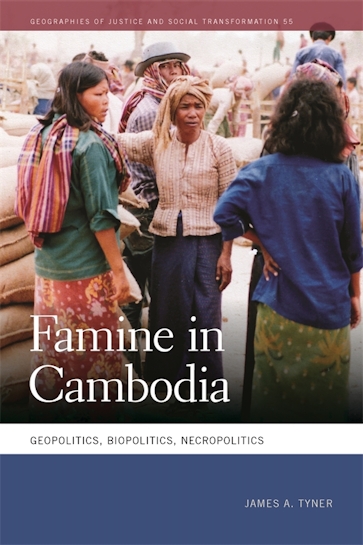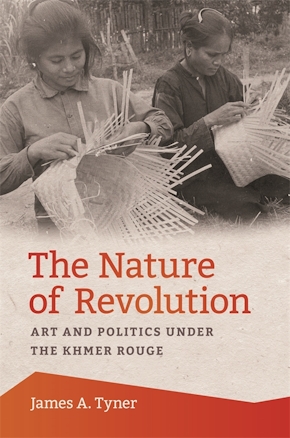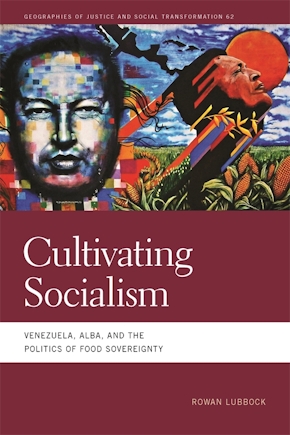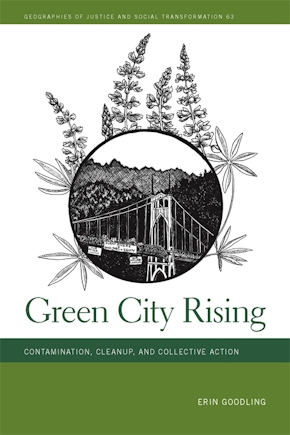Famine in Cambodia
Geopolitics, Biopolitics, Necropolitics
Title Details
Pages: 218
Trim size: 6.000in x 9.000in
Formats
Paperback
Pub Date: 04/15/2023
ISBN: 9-780-8203-6372-1
List Price: $32.95
Hardcover
Pub Date: 04/15/2023
ISBN: 9-780-8203-6373-8
List Price: $114.95
eBook
Pub Date: 04/15/2023
ISBN: 9-780-8203-6374-5
List Price: $32.95
eBook
Pub Date: 04/15/2023
ISBN: 9-780-8203-6375-2
List Price: $32.95
Famine in Cambodia
Geopolitics, Biopolitics, Necropolitics
An examination of state-induced famines as a form of sovereign violence
Skip to
- Description
- Reviews
This book examines three consecutive famines in Cambodia during the 1970s, exploring both continuities and discontinuities of all three. Cambodia experienced these consecutive famines against the backdrop of four distinct governments: the Kingdom of Cambodia (1953–1970), the U.S.-supported Khmer Republic (1970–1975), the communist Democratic Kampuchea (1975–1979), and the Vietnamese-controlled People’s Republic of Kampuchea (1979–1989).
Famine in Cambodia documents how state-induced famine constituted a form of sovereign violence and operated against the backdrop of sweeping historical transformations of Cambodian society. It also highlights how state-induced famines should not be solely framed from the vantage point in which famine occurs but should also focus on the geopolitics of state-induced famines, as states other than Cambodia conditioned the famine in Cambodia.
Drawing on an array of theorists, including Michel Foucault, Giorgio Agamben, and Achille Mbembe, James A. Tyner provides a conceptual framework to bring together geopolitics, biopolitics, and necropolitics in an effort to expand our understanding of state-induced famines. Tyner argues that state-induced famine constitutes a form of sovereign violence—a form of power that both takes life and disallows life.
—Craig Etcheson, author of Extraordinary Justice: Law, Politics, and the Khmer Rouge Tribunals
Famine in Cambodia opens up important questions and debates in a number of fields of scholarly inquiry: agrarian Marxism, food regimes, forms of actually existing socialism and famine dynamics, and Cambodian history and political economy. To my knowledge there is no comparable study of the political economy of famine in Cambodia. . . . Tyner’s research clearly reflects a deep and sophisticated understanding and control of archival and historical materials and is a crucial contribution to the literature.
—Michael J. Watts, author of Silent Violence: Food, Famine, and Peasantry in Northern Nigeria



